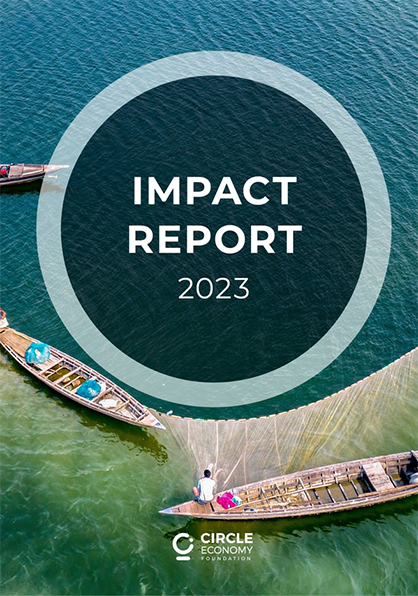#Sustainability
From Montréal to Morocco: Circle Economy Foundation’s impact was global in 2023
To Analyse, the Circularity Gap Report Latin America and the Caribbean provided the first of its kind analysis in the region, finding that 40% of the region’s raw materials are exported—revealing the disparity between global material demand and local communities that bear the brunt of ecological breakdown. This year also saw the launch of the Circularity Gap Report for Cities, bringing the Circularity Gap Report to the local level: Munich was up first, demonstrating it can use 43% less materials than it uses now while cutting its consumption-based CO2 emissions by 23%.

To Act, Circle Economy Foundation developed a training programme with Oxfam to build the capacity of small- and medium-sized enterprises towards a green and circular economy. The circular training model has so far been implemented across several countries: Nigeria, Egypt, Uganda, Somaliland, Kenya and Cambodia.
To Scale their work, they have finalised their spin-off, Circle Economy Consulting, and they are proud to announce that Deloitte will be its Scaling Partner. They have also been building capacity across key value chains via the UN-led SWITCH to Circular Economy Value Chains programme and the acquisition of Sustainability Games—an educational tool for teaching circular principles. Sustainability Games was implemented by plastics companies in Morocco and textiles companies in Bangladesh via SWITCH to educate and inform workers on the ground.
Zooming in on the practical outcomes of their work, they've seen their research inform the creation of circular policies across Europe, the UK and Canada. For example, thanks to the Circle City Scan, Circular Montréal: Baseline Assessment, Montréal has released its public consultation document, ‘Towards a Montréal roadmap in the circular economy’, which will inform the creation of their future circular strategy.
Meanwhile, in Austria, the Circularity Gap Report Austria was presented to the Ministry of Environment in 2019. Four years later, the report has contributed to the country’s recent policy changes. The Austrian Cabinet of Ministers has now adopted a National Circular Economy Strategy. Following their analysis, the comprehensive policy document aims to boost circularity from 9.7% to 18% by 2030.
Wrapping up this year, Circle Economy has empowered 30 businesses, three cities and four nations across three continents to become more circular. This contributes to the total of 150 businesses, 55 cities and 27 nations across six continents that they’ve aided over the past ten years. They’ve also trained more than 4,230 people in circular principles over the past decade.
These are just a few highlights from the Impact Report 2023. Download the full report to see how they’re making the circular economy a reality.












